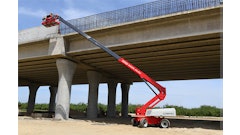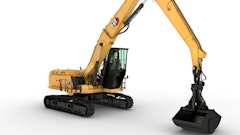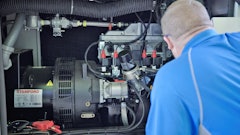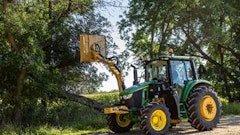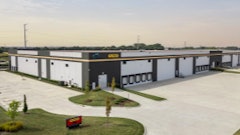Field service has long been a big part of the rental business, and the trend has been growing in recent years. What has not been the norm, however, is field-service equipment for rent.
Rental operations have been key clients of QT Equipment, Akron, OH, ever since QT was founded in 1991, but that business required rental companies to own service vehicles in order to maintain their rental fleet in the field. All of that changed when QT launched what it believes is the first nationwide service-truck rental program.
Many rental companies have come to realize the value of field service to their customers. Good customer service includes providing around-the-clock customer care that quickly addresses breakdowns, and a good equipment-maintenance program should include a dedicated field-service vehicle.
“We help our rental clients understand that field service comes back to their bottom line in the end,” says Doug Root, president of QT Equipment. “When a customer calls to say that they are suffering downtime because of an equipment breakdown, you have to be able to get to the jobsite and fix it immediately. Every dollar you save your customers by sparing them downtime is a dollar that’s going to come back to you.”
Until QT launched its rental program, rental operations had two choices if they needed to do field service: buy their own service vehicles or contract with a third-party service provider to fix their customers’ breakdowns and take care of preventive maintenance schedules. Now there is a third option.
QT Equipment, which has offices in Ohio and Florida, recently launched a nationwide rental program for service equipment, making it one of the country’s only locations to rent mechanics trucks, lube trucks and articulating cranes. QT is a Diamond Authority Distributor for Iowa Mold Tooling Co. Inc. (IMT), and QT’s fleet of rental service equipment consists of IMT Dominator mechanics trucks, IMT SiteStar lube trucks and IMT articulating cranes, as well as the QT Lube Trailer.
“Rentals are very popular with so many other types of equipment, but no rental company has tackled the service equipment business yet,” Root says. “The rental option is great for our customers who want the benefits of field service but aren’t quite ready to purchase their own equipment or who need a temporary fill-in unit.”
Renting for rental companies
A rental company can benefit from renting a service truck in a variety of ways. First, many rental operations depend on steady cash flow, and renting a service truck avoids the capital expenditure of purchasing. Also, rental companies on the fence about buying service trucks can rent a mechanics truck for a few months as a trial.
“Owning service trucks is generally a no-brainer for large rental operations, and it usually makes good economic sense for mid-sized ones,” Root said. “But small rental companies might need help figuring out how to justify the expense.”
Renting a service truck gives a company the chance to decide whether the benefits of significantly increased uptime on their equipment would outweigh the cost of buying a dedicated service truck. Many of these smaller operations still have to go through a very time-consuming process when equipment breaks down. Rental companies without service trucks must drop off a fresh piece of equipment at the jobsite and take the broken-down machine back to the shop for repairs - and that’s only if the same equipment is available. If it’s not, then the rental house has to haul the equipment to the shop, fix it and try to get it back to the customer before downtime has become a big enough issue to keep the customer from ever coming back. The other option, in the absence of an in-house service truck, is to contract with a third-party field mechanic.
The QT service-equipment rental program also offers advantages for rental companies that already depend on service trucks in their daily operations.
“Service trucks break down, just like any other type of equipment, and many rental houses cannot imagine going an hour, let alone days or weeks, if their mechanics truck breaks down or is in a wreck,” Root says. “Our rental program can fill that void while they are waiting for their mechanics truck or lube truck to come back from the shop.”
Sometimes it’s hard for rental companies to determine exactly how many service trucks their operations need. Large rental houses often need multiple service trucks to cover their territory. Renting an extra service truck and trying it out for a few months can help companies complete the cost-benefit analysis of adding a new truck to the fleet.
Another scenario in which a rental company might want to have a service truck for a short time might be if they are accustomed to short-term rentals and only occasionally do long-term rentals. With short-term rentals, the equipment would only need field repair in the event of a breakdown, but the rental house rarely needs to worry about doing preventive maintenance (oil changes, filter changes, etc.) in this situation. A company that offers primarily short-term rentals might not ever need to own a dedicated service truck. But when long-term rental opportunities arise, it might make more economic sense to rent a service truck for the duration of that rental contract instead of incurring the expense (and downtime headache for the customer) of hauling the equipment back to the shop for routine maintenance.
“Customers have been asking about rental options for years, so we’re very pleased to bring them this program as an alternative to purchasing service equipment,” Root says. “We also have buyout options available if customers want to rent service trucks or articulating cranes on a trial basis and then decide that these units would make an excellent addition to their equipment fleet.”
The contractor customer
Rental companies are certainly not the only potential candidates for service-truck rental. Service-equipment rental is attractive to contractors for many of the same reasons, including:
- Immediate access to service equipment while replacing a wrecked truck or waiting for a new service truck to be built
- Avoiding capital expenditure
- Project-by-project flexibility
- Easy trial period for companies that want to test a newly hired mechanic or make sure that purchasing a service truck is a good business move
- Optimized cash flow and minimized risk for new companies that might only need service equipment for a short time period
One of QT’s customers, Miller Brothers Construction, turned to rental when their service truck was out of commission and they couldn’t wait for it to be fixed.
“We had a service truck involved in an accident. It wasn’t totaled and the driver was not injured, but the truck had to be taken out of service for major repairs,” says Sean Galliger, equipment supervisor for Miller Brothers. “Having access to a short-term rental saved us from a lot of downtime and headaches. I would recommend this to any company that needs to fulfill an immediate, short-term service need.”
Seasonal work can be another reason companies might have a temporary service need. Fleet Maintenance and Repair in New York decided to rent an extra service truck from QT Equipment for that very reason.
“During the winter, our business can spike 40 percent. It doesn’t make a whole lot of sense to have a truck payment and insurance for 12 months when we only have three to four months of heavy usage,” says Bill Youngson, president and owner of Fleet Maintenance and Repair. “By renting a service truck from QT, we can capture as much business as possible without having to carry that burden all year long.”
QT Equipment will rent service trucks nationwide. Because QT has offices in Ohio and Florida, rentals to far-flung locations might or might not incur a shipping charge, depending upon length of rental. For example, if a customer in Oregon rents a mechanics truck, a shipping charge might apply if the rental lasts four weeks, but shipping would not be charged for a long-term rental. QT requires a minimum rental of four weeks on its service equipment. For equipment buyouts, a percentage of the rental payment is applied to the purchase price, and this percentage is dependent on the type of equipment and length of rental. Rates are determined by type of equipment, length of rental and buyout option.
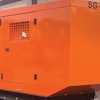

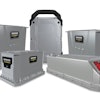



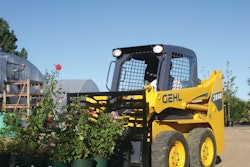
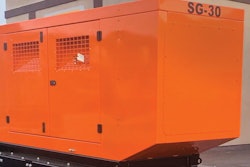
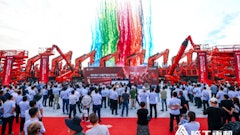
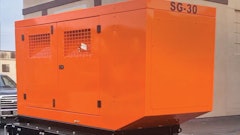

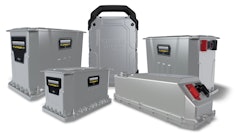
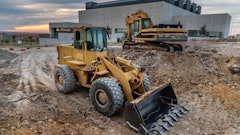
![Building Angled Sm Edit 6050b8d213f1b[1]](https://img.forconstructionpros.com/mindful/acbm/workspaces/default/uploads/2025/09/building-angled-sm-edit6050b8d213f1b1.Ygq5aAos3b.png?ar=16%3A9&auto=format%2Ccompress&crop=focalpoint&fit=crop&fp-x=0.53&fp-y=0.23&fp-z=2&h=135&q=70&w=240)
